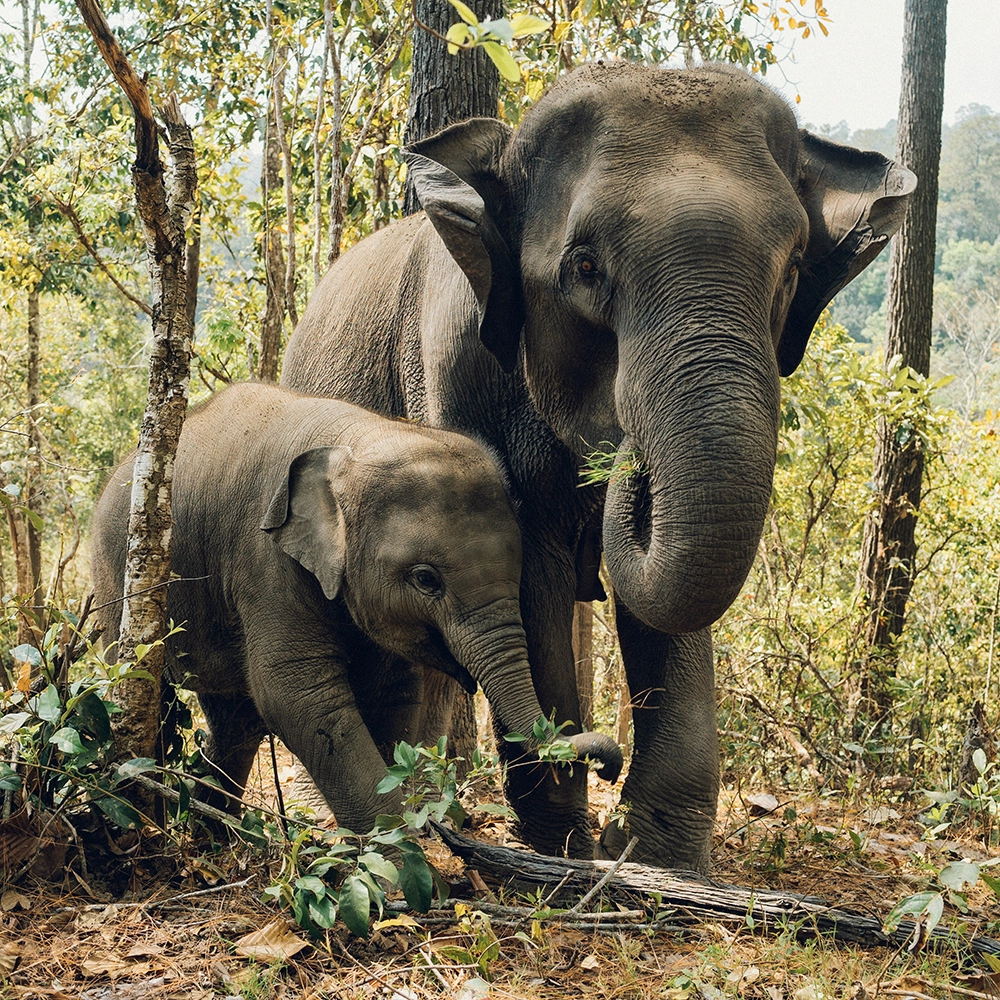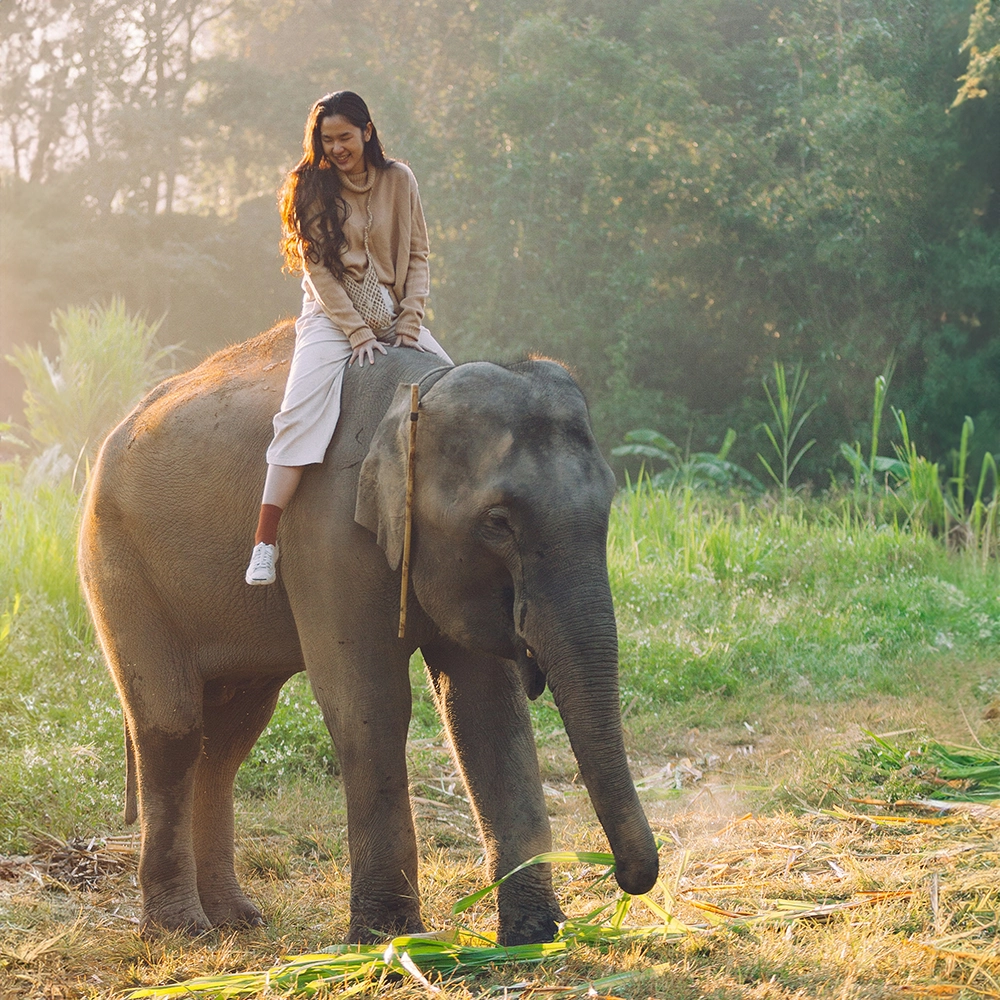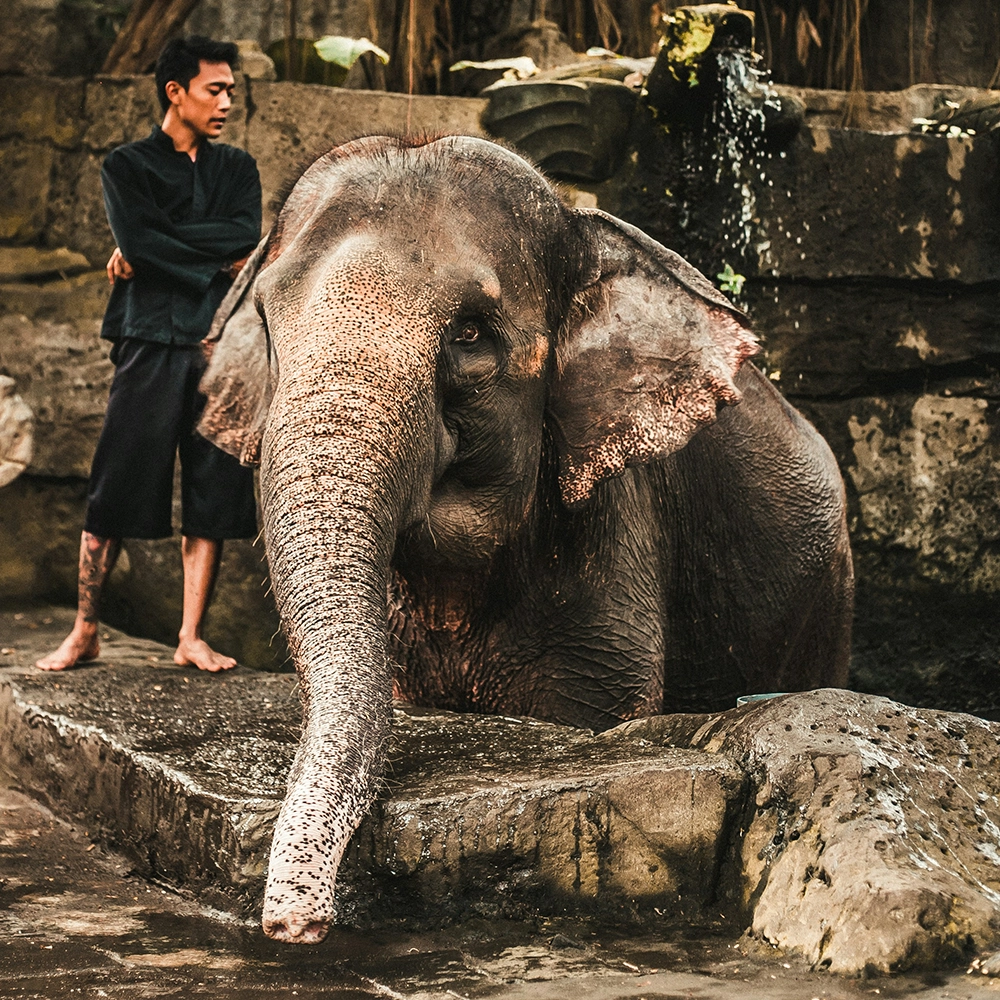"Don't ride the elephants," said a few passionate people I met in Asia shortly before I rode an elephant.
Because of the stigma attached to riding Asian elephants, I didn't want to ride the elephant I rode. I rode the elephant for the same reason I put a lobster in a toilet at my high school — peer pressure.
Riding Elephants in Thailand: It’s Complicated
In a country like Thailand, the relationship between humans and elephants is complicated and ancient. Humans and elephants have been working together for 5,000 years, even before the domestication of horses.
Elephants are an official national symbol of Thailand. For thousands of years, elephants have participated in warfare, labor, royal and spiritual symbolism, and most recently, tourism.
Cultural status in Thai culture is important but also complicated. In the last century, the elephant has fallen from the high status of royalty to the low status of tourist commodity. This is related to there being few protections afforded them by society.
Elephant tourism is an ethical issue for both humans and animals. Mistreated elephants in Thailand can become depressed, anxious, and, ultimately, aggressive.
Elephant Voices, an elephant rights organization, describes elephants as complex social animals with close family ties and differing gender roles. In other words, they’re a lot like us humans. And if someone were to keep me in a cage with psychologically oppressive conditions? I might get depressed, anxious, and aggressive, too.
The victim of the aggression is often the elephant's "mahout," or handler, which was once a prestigious position but now is a low-wage, low-class job assigned to immigrants like my Filippino host.
There are two types of elephant owners: traditional owners who have had elephants for generations and "nouveau riche" owners who are new to the game.
A UN human rights report on the issue notes that, "nouveau riche owners nearly always spell trouble for elephants because inexperienced owners invariably lack the expertise needed to supervise the hired mahouts."
Is It Bad to Ride an Elephant?
Voices cautioning against participating in elephant tourism in Thailand come from two places: caution or activism.
Elephants can be dangerous. They are huge beasts capable of complex emotions. Biologists have noted that even in the wild, elephants go through mood swings. A properly trained handler knows when an elephant is in a bad headspace and should not go out to work.
That was the underlying error that led to an elephant handler’s death in Thailand. The handlers suggested the elephant take the day off, but they were overruled by the owner.
The other reason for discouraging elephant rides is the activist belief that the whole institution of elephant tourism should be dissolved. The sentiment is sometimes simple — elephants should not be ridden because elephants should be free.
Most of the elephants in question come from gene pools that have been domesticated for thousands of years. Saying all elephants in Asia should be free is as extreme a viewpoint as wanting all horses in the United States to be set loose.
At the forefront of fighting injustice incurred from elephant tourism is elephant tourism itself. All elephant tourism is not created equal. Some of it is the problem, but some of it is solving the problem.
Visiting an Elephant Village in Thailand
After my elephant ride with the Filipinos, we rode our bikes to the elephant sanctuary and got the lowdown from the front lines of the Asian elephant problem.
"Are we allowed to be here?” I asked my friends as we biked into a field of elephants being led by a few humans headed toward some buildings.
"I don't know," said Drexel, a Bangkok resident from the Philippines. "I guess we'll find out."
We leaned our bikes against a tree, and a baby elephant came running towards us. Surely we were living many little kids’ dreams in that moment. We became like kids ourselves. It's a baby elephant, and he wants to hang out with us! Then the baby elephant started untying my shoe, and we all filled up our memory cards taking photos.
After we recovered from baby elephant delight, we walked to a cafeteria where everyone was wearing the same red volunteer shirt. We ended up chatting with Matthew Ward, a British 20-something who was a volunteer-turned-employee at Elephantstay, a nonprofit dedicated to retiring old elephants.
What properly done elephant tourism does for elephants in Thailand is give these beasts a job and a sanctuary. In 1989, when the Thai government banned elephants from being used as animal labor in logging, every elephant found itself suddenly unemployed. Many elephants were set free and ran amuck, causing chaos in cities across the country.
Then in 1996, a Thai couple gave an elephant to their seven-year-old daughter as a birthday gift (which makes all the childhood gifts we received seem epically lame). Through the elephant-owning process, the family learned just how bad elephants in Thailand had it.
So they started the Prakocha Baan Foundation, which oversees Elephantstay. It’s a working village for elephants that today houses 160 animals. The foundation takes in dangerous elephants and reintroduces them back into the social hierarchy of elephant society. Their funding comes from offering tourists elephant rides and packages where visitors can stay in the elephant village, learning how to maintain and train elephants.
"People come here because they love elephants and want to protect them," Ward says.
He is one such elephant lover. He came upon the elephant village on a trip to Thailand and stayed for one week as an elephant caretaker. His first week he was taught how to care for Honey the elephant.
"During that week,” Ward recounts, “I was completely captivated by these animals, the village, the work that goes on here and specifically fell head over heels in love with my Honey! It was love at first sight."
He went back to England but returned to volunteer for six more months. When those six months were up, he became an employee and, three years later, was still at the elephant village.
"There's a lot of propaganda out there," he says. "A lot of people will tell you all of the elephants in elephant tourism are abused. That's simply not true. We have dozens of elephants working in tourism, and that allows them and the other elephants in the village to live in decent living conditions where they have all of their needs met."
The other volunteers I spoke with found their experience of an elephant stay both educational and transformational.
"Elephants are smart!" one young woman from Australia exclaimed. "Not just smart, but intelligent and wise. They are also affectionate.”
I remember from a safari in Kenya my guide saying, "If a man mistreats an elephant, the beast will always become upset when he sees that man again. Forty years can pass, but the elephant will remember.”
It’s unfair to dismiss all elephant tourism as "bad.” Human intervention has caused many problems, but participation in elephant tourism can help the plight of some elephants, too.
Where Can I Take an Elephant Ride Ethically?
So you want to ride an elephant. How do you know whether your ride is helping the elephant or promoting animal abuse?
Remember, just because a place might call itself a sanctuary, doesn’t mean it’s automatically ethical. Use these clues to tell the difference.
- Are the elephants restrained or chained up?
- Do workers use bullhooks to control the elephants?
- Do they have a breeding program geared toward creating a constant supply of worker elephants, or do they rescue those that are injured or are otherwise unable to survive in the wild?
- Does the sanctuary contribute to other local conservation efforts, or does it exist solely for tourism dollars?
When in doubt, don’t ride an elephant. There are plenty of places you can see them in the wild where they’re at their most real and natural. Take a safari through Kui Buri National Park or Khao Yai National Park, two of the biggest and most popular parks to see elephants in the wild.
There are also places like Boon Lott’s Elephant Sanctuary in Sukhothai, Thailand. The rescued elephants at BLES don’t give rides or cater to tourists, but they are protected on 600 acres. You can watch them graze or play in the rivers, unbothered by forced human interaction.
How to Be an Eco-Friendly Traveler
You might be trying to be kinder to animals. Or maybe you want to keep harmful sunblock chemicals out of the ocean. It could be that you’re trying to slow down so have a smaller carbon footprint. The good news is that you can do all of these things and still travel. You don’t have to give up on adventure to be eco-friendly.
Check out the Seven Corners blog for more tips on traveling sustainably.



